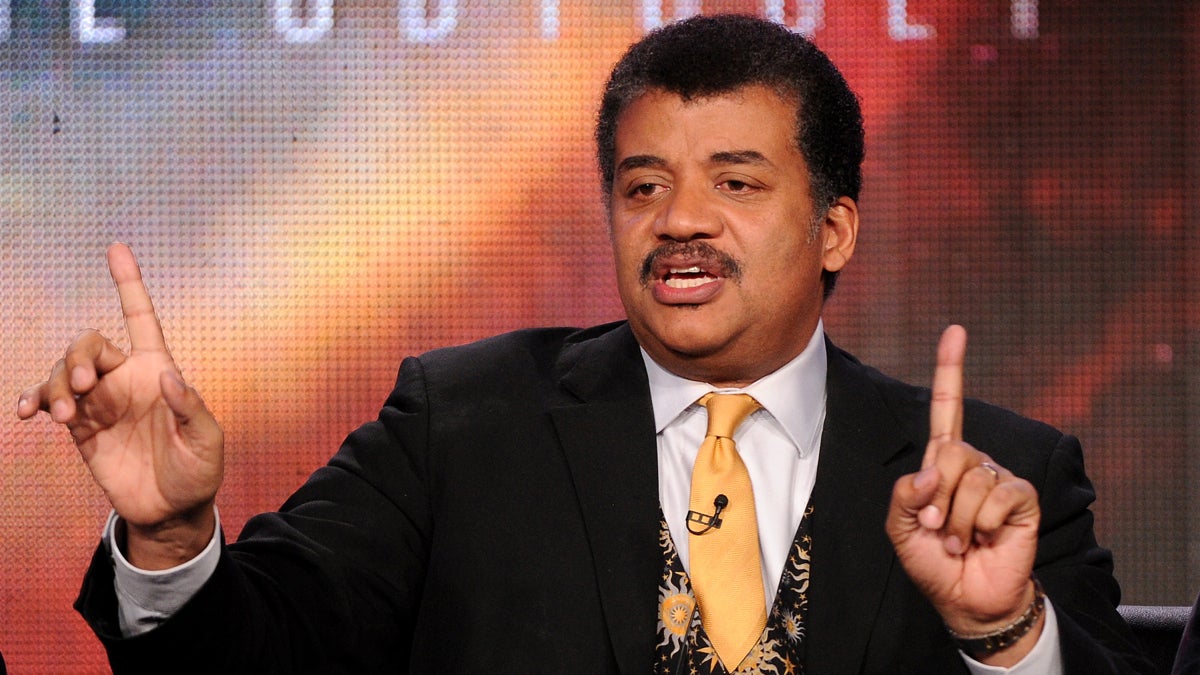Faith vs. science, a phony fight fueled by the ill-informed
Listen
Astrophysicist Neil DeGrasse Tyson. (Photo by Frank Micelotta/Invision for FOX/AP Images)
Uh-oh, Neil deGrasse Tyson has been making mischief on Twitter.
Driven by God knows what compulsion, America’s most famous astrophysicist tapped out a series of cheeky Christmas Day tweets.
Including this one:
On this day long ago, a child was born who, by age 30, would transform the world. Happy Birthday Isaac Newton b. Dec 25, 1642
— Neil deGrasse Tyson (@neiltyson) December 25, 2014
Actually, Tyson was wrong on Newton’s birthday. He got caught in an historical oddity. Unlike much of Europe, the England of Newton’s day still used the old Julian calendar, not the current Gregorian one. So, by modern reckoning, Sir Isaac was actually born on Jan. 4, 1643.
But that factual error wasn’t why so many Twitterites spent their holiday day raging at Tyson. It was his mocking tone.
Tyson’s 140-character provocations were just the fodder some conservative talkers needed to crank up their beloved war-on-Christmas, war-on Christians meme.
With added spice from another old argument: science (supposedly) vs. faith.
As a Christian who reveres Galileo, Newton, Darwin, Mendel, Einstein, Hawking and other giants of scientific advancement, might I mildly observe how tedious and wrong-headed these science vs. faith arguments can become?
There is no immutable conflict between having faith in God and embracing the scientific method and its fruits.
Of course, for some people whose faith seems to hinge on literal understandings of sacred texts, conflicts arise. And without question, some champions of science seem unable to resist picking stupid fights with people of faith.
But it’s just as true that, throughout history, some people of great faith have been on the leading edges of scientific exploration. That would include Newton and Mendel.
All it takes to reconcile science and faith is an acceptance that multiple valid ways of unpacking the mysteries of life can exist. And co-exist.
Most of the notorious examples of religious institutions blocking and persecuting scientific advances don’t speak to the nature of faith itself. They flow from the flaws of human nature, chief among them a resistance to change, particularly change that threatens one’s grasp on authority.
People can always brandish a holy book as their excuse for being narrow-minded and fearful. And others can toss around names of scientific giants as their shield for being ill-informed about how central religious faith is to the lives of many thoughtful people.
Those behaviors don’t prove anything about the validity of faith or science. They just show the human capacity for aggressive ignorance.
WHYY is your source for fact-based, in-depth journalism and information. As a nonprofit organization, we rely on financial support from readers like you. Please give today.




